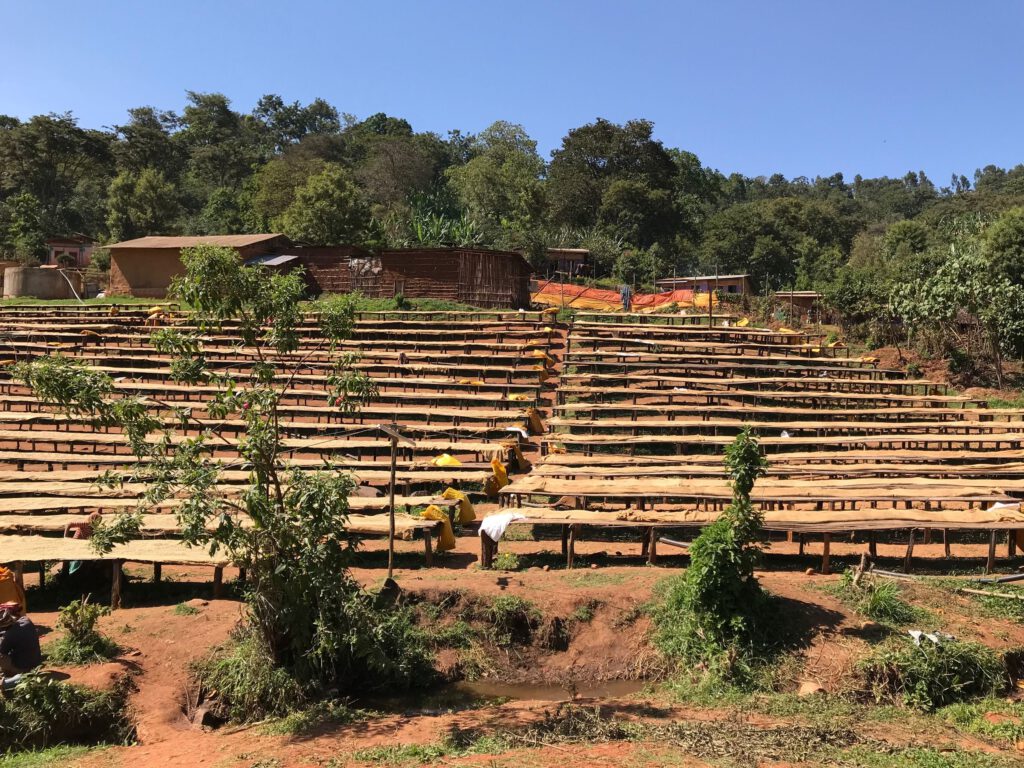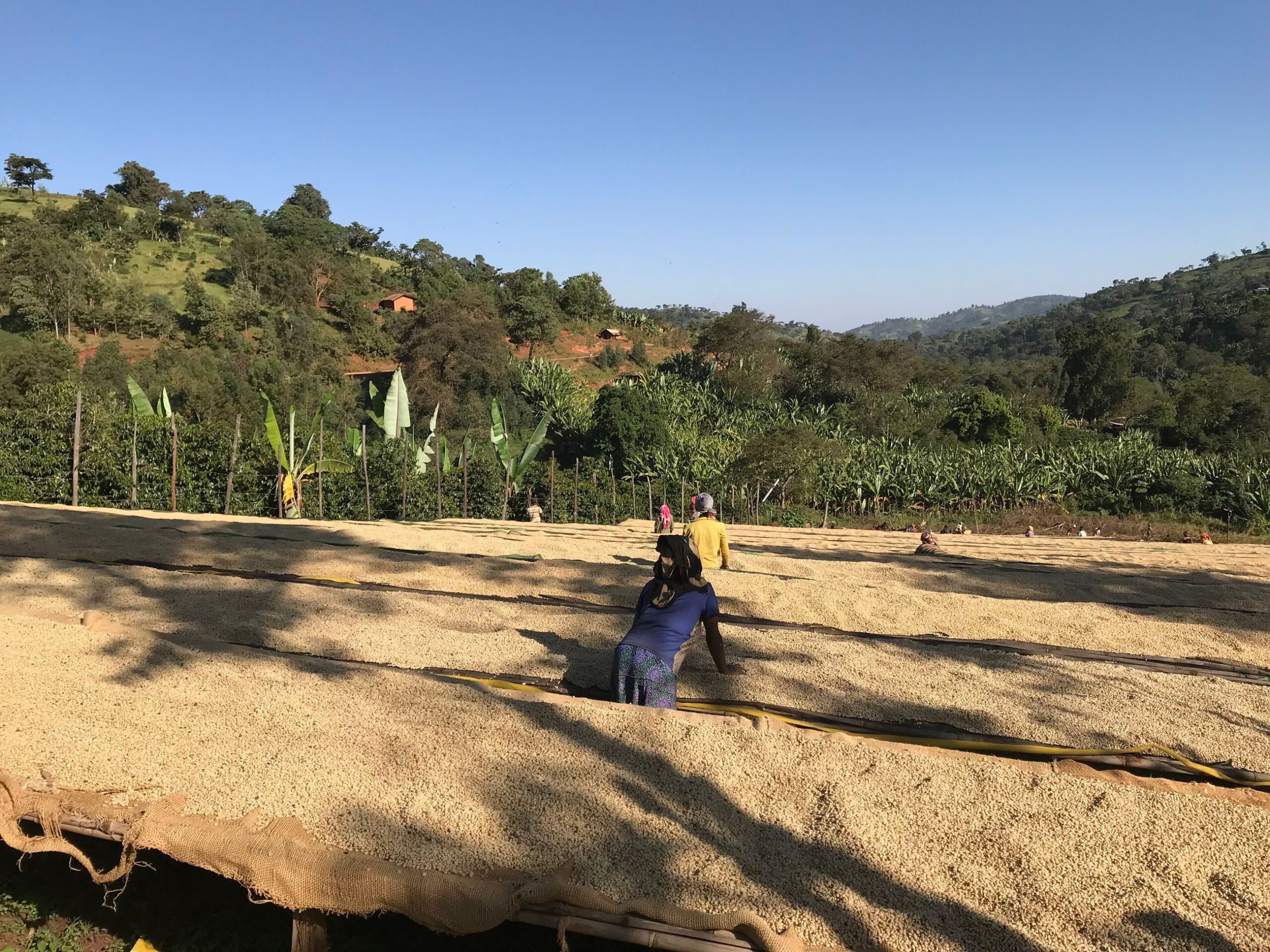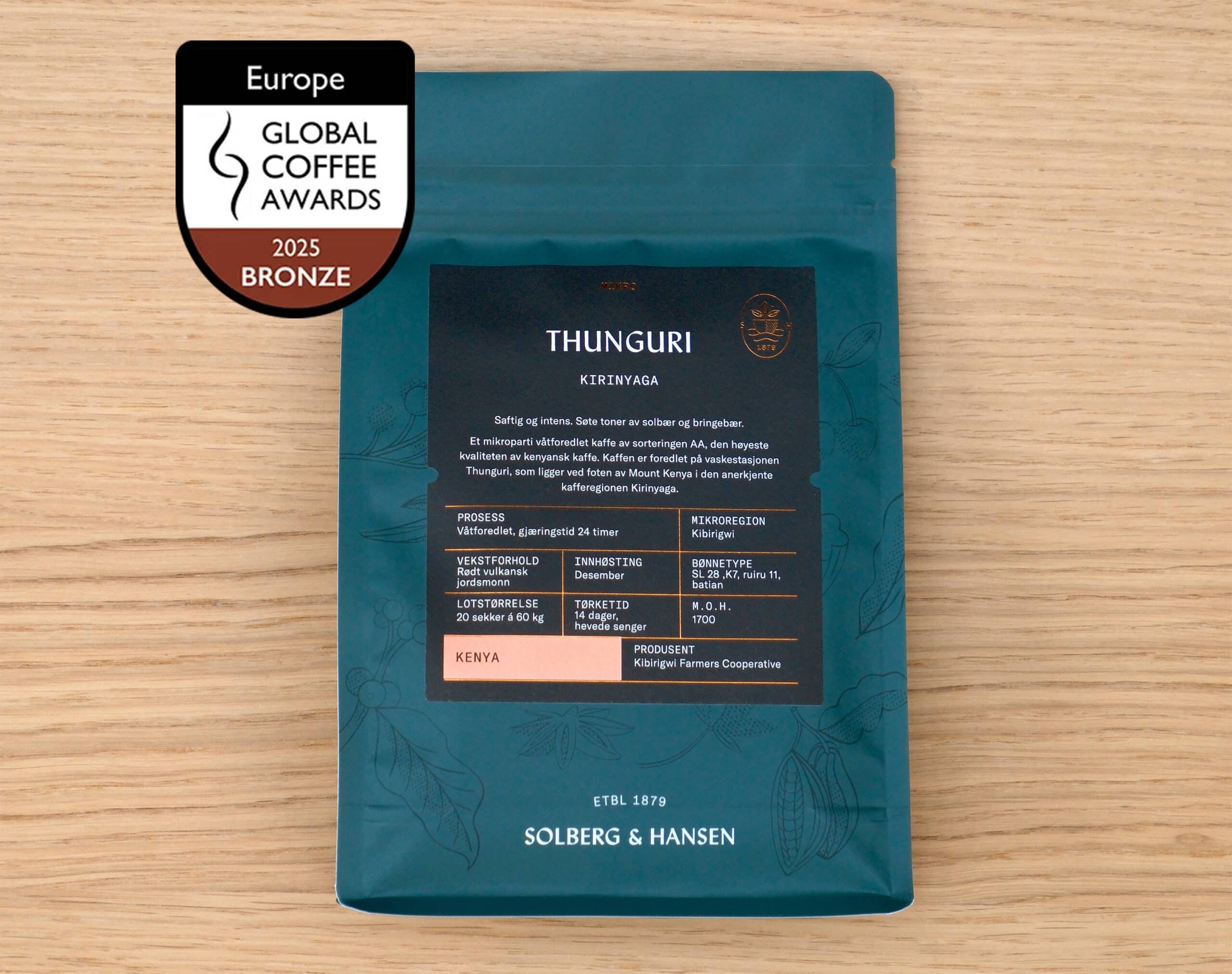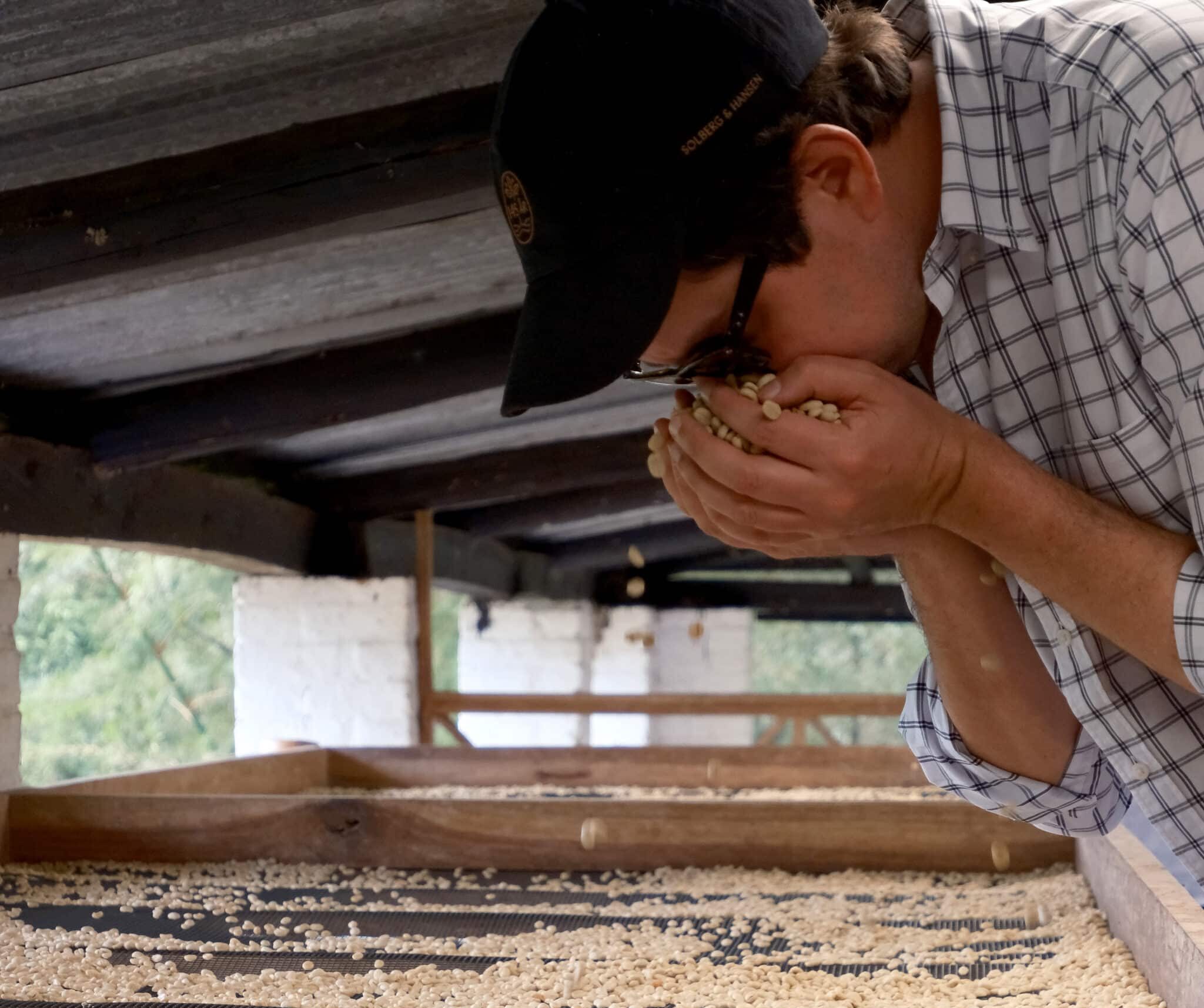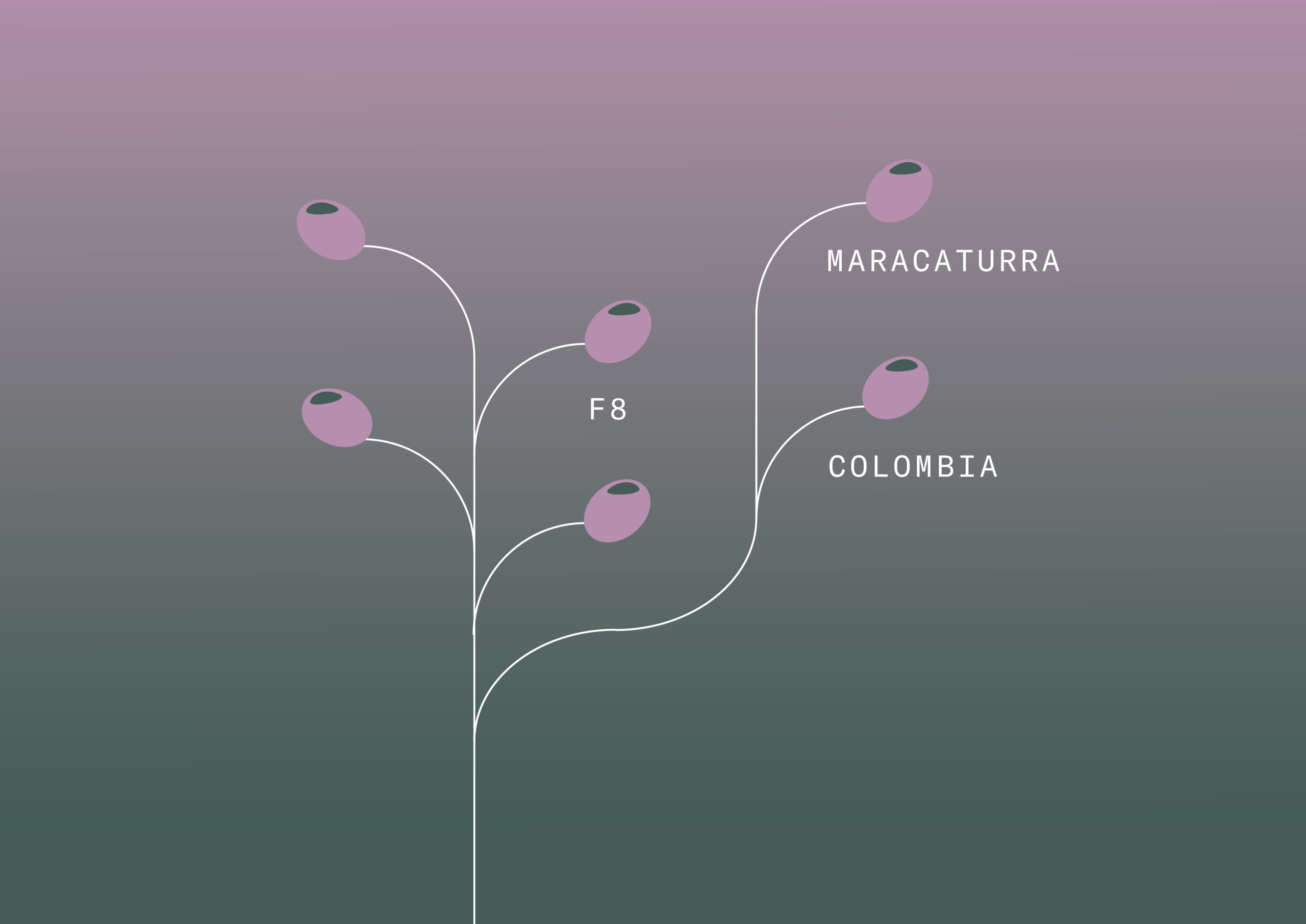Solberg & Hansen has been working with Tade in Ethiopia since 2009. Because the farm is privately owned, it has been possible to create close and good relationships with Tade. This has given us a unique opportunity to follow everything from picking to processing in one of Ethiopia's best coffee districts, Guji. Through Tade, we can offer a coffee that combines the flavours and character of the area with the high quality that follows conscious and careful production.
Coffee production in Ethiopia
In Ethiopia, most coffee farms are very small, often run by families in their own gardens. These simple farms are often linked to a large co-operative that processes and sells the coffee. As a result, it is virtually impossible to keep track of which bean varieties are supplied through the co-operatives. What is certain, however, is that all of them are variations of Arabica, which is considered to be the best tasting type of coffee.
The fact that Tade is exempt from the Ethiopian Commodities Exchange means that the coffee we buy from Tade is traceable all the way back to cultivation.
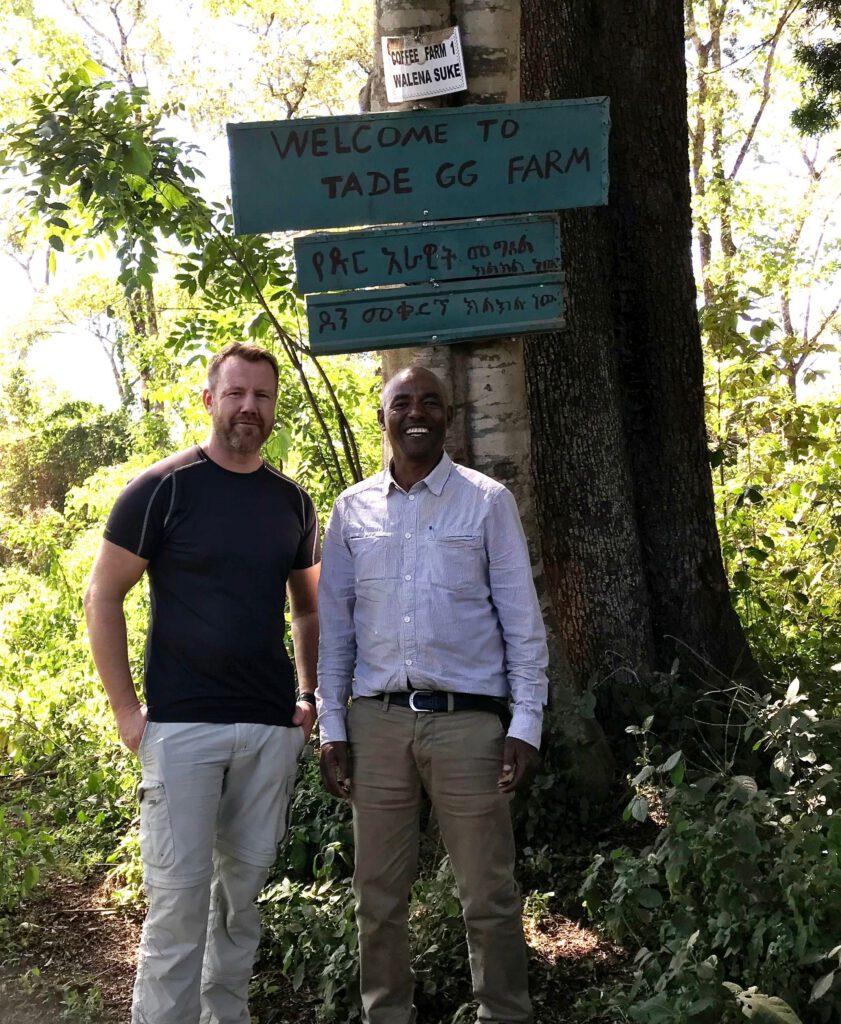
Natural cultivation and processing
Tesfaye has an above-average concern for the environment, and not least how nature affects the beans he grows. That's why he preserves the original tree species and soil associated with his coffee plants. Tade is certified organic and uses only natural compost. Leaves that have fallen from the coffee and shade trees are left on the ground during the drying season to retain moisture in the soil and are removed before the rainy season to ensure good irrigation of the soil and avoid rot.
Tade consists of the bean types Kurume and Wolicho, two variations of typica. Ripe coffee berries are hand-picked at the Suke Quto farm. They are then processed at the Tade washing station, where they are first wet-processed and then dried on African drying beds. Eventually, the coffee beans end up in our roastery at Ryen, where we roast and prepare the coffee for you.
